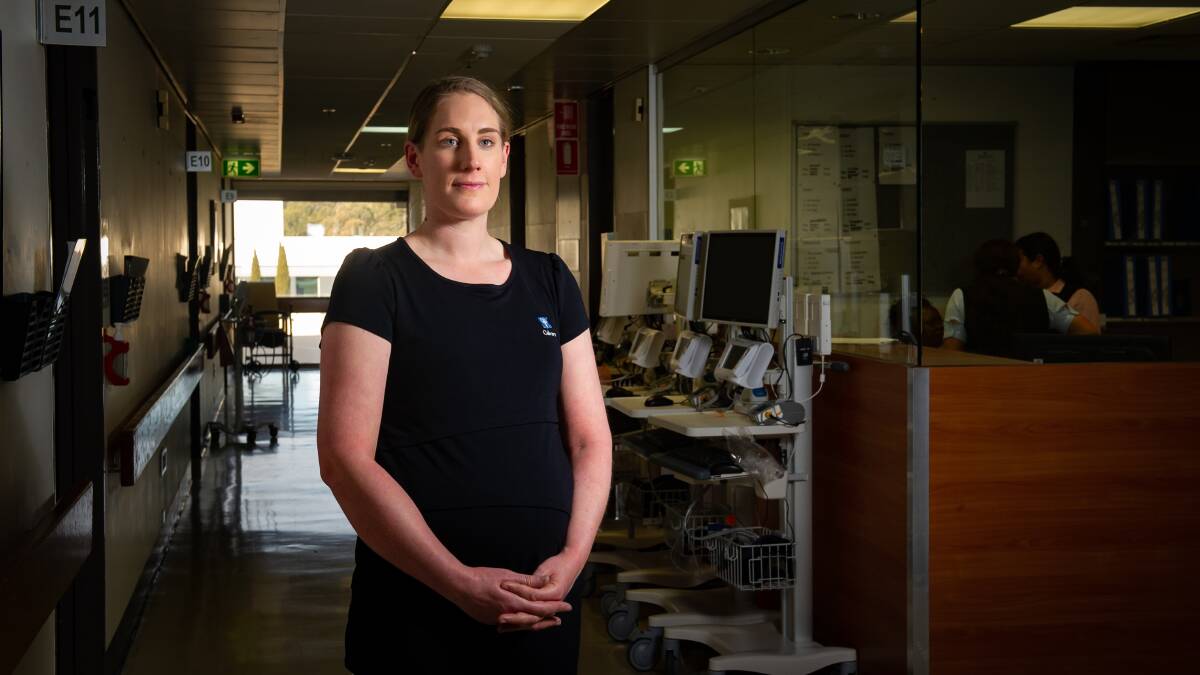
In the more than three years Amy Fowler has been working as a nurse, there's been at least one shift a week where a patient or visitor becomes abusive towards a staff member.
Subscribe now for unlimited access.
$0/
(min cost $0)
or signup to continue reading
"People forget their manners a bit and forget how to interact peacefully. We get a lot of stalking around the ward when we're trying to talk to other patients and it's quite intimidating," Ms Fowler said.
"Lots of people get very aggressive and lose control."
Ms Fowler, an endorsed enrolled nurse at Calvary Hospital, said while she understands that emotions often run high when loved ones are in hospital, the verbal, and sometimes physical, abuse takes a toll on health workers.
"It builds up over time. It starts to happen once a shift or a few times a week and it adds up and staff then become anxious to be on the job," she said.
"If we don't feel safe, we can't provide the optimal care, and we need to report things as they happen."
A new ACT government campaign, to be rolled out on social media and across hospitals in Canberra, will aim to stamp occupational violence towards nurses and midwives.
ACT Health Minister Rachel Stephen-Smith said the campaign aimed to stamp out aggressive behaviour.
"The threat of occupational violence is real and significant and long-lasting," Ms Stephen-Smith said.
"It can impact on the happiness and mental health of the nurse and the whole team."
The $100,000 advertising campaign will run over the next 12 months.
Social media ads and videos that are part of the campaign, however, won't run during the ACT government caretaker period, which lasts from September 11 until after the election.
The campaign was one of the projects outlined in the ACT's Nurses and Midwives Towards a Safer Culture Strategy, which was released back in December 2018.
READ MORE:
Australian Nursing and Midwifery Federation ACT branch secretary Matthew Daniel said there had been an increasing number of occupational violence reports.
"Members reported increasing rates of violence at the outset of the coronavirus pandemic, and that was borne out of frustration in the community about qualifying for coronavirus tests," Mr Daniel said.
"It's important to be mindful of the psychological impacts of verbal violence that can build up over time.
"It only takes one more time that a nurse or a midwife has to put up with an aggressive patient and they can walk away from the profession."
Mr Daniel said while reports of violence on the job may be rising, it could also be due to more nurses and midwives standing up and reporting an incident they had experienced.
"If reporting goes up, in one sense, people are more confident that something will be done," Mr Daniel said.
"[For] every instance of violence, [something] can be learnt about what is underlining that so we can respond to it."
Ms Fowler said reporting such incidents was essential.
"We need to look after ourselves so we can provide the best care," she said.


